Immune Compromised Pets and Raw Food Part 2 - Why TO feed raw to our immune compromised pets3/31/2016
Doesn’t common sense dictate the food with natural, easy-to-access nutrition is the best choice for our immune compromised pets?
by Laurie
I feed my cat with asthma and emphysema raw. She is also on immune-suppressive doses of depomedrol to manage her condition.
…and although this isn’t related to immune-suppression, I feed my cat with chronic kidney disease and pancreatitis raw. My co-founding partner, Carolina, feeds raw food to her cats with inflammatory Bowel Disease (IBD) and pancreatitis. In fact, raw food very likely saved her Bugsy’s life. None of my pets has ever had a food-related illness. They are raw-fed for over four years. As I have (at the time this was written) 14 cats, I use supermarket meat to lower the cost of feeding. Why did I decide to feed raw food to ALL of my cats, including my immune-compromised pets? Our pets do not lose their defenses that protect them when eating their natural diet just because they become sick or their immune systems become compromised. As Tracy Dion, owner of CatCentric, aptly puts it in Raw Feeding and Health-compromised Cats, “Cats are so finely-tuned for a diet of prey animals that it’s not only safe to put FIV+ cats on a raw diet, it’s vitally important to support their immune systems by feeding them the foods that are going to nourish their physiology at the highest levels.” After all “cats’ natural, inborn defenses against bacteria don’t disappear just because their health is compromised, they become FIV+ or catch an upper respiratory infection – the glands in their mouths still produce lysozyme-containing saliva, their stomach acids still kill incoming pathogens, their digestive tracts are still just about the shortest, comparatively-speaking, in the animal kingdom.” Understanding the risks, we can take steps to mitigate them.
Understanding the symptoms of a problem, we can seek treatment. Salmonella infection is “rarely seen in cats,” and “most felines will only be carriers of the bacteria and there won’t be any clinical symptoms.” According to the Merck Veterinary Manual, salmonella is a normal part of the gut flora of dogs and cats (and other animals). But kittens and cats with weak immune systems are more susceptible to illness, so be aware of what to look for and do not delay taking your pet to see a vet: Salmonella in Cats at VetInfo. Cats digest raw meat-and-organ based food best. Is it REALLY any surprise that food is more easily digested and the nutrition more readily metabolized by our pets when in a format they would naturally consume it? A study examining extruded (kibble) vs cooked (canned) and raw beef fed to cats demonstrates this, as does a study comparing digestibility of raw diets with a “canned heat-processed” diet in kittens. This study found that “Significantly higher digestibility of dry matter (P <0.001), organic matter (P <0.001), crude protein (P <0.001) and gross energy (P <0.001) was seen in the raw diets compared with the heat-processed diets. This difference resulted in significantly less fecal matter (P <0.001) despite similar levels of intake, kcal ingested and evidence of no difference in fecal scores.” Yep. This is the first thing we notice when transitioning to raw: there’s almost no waste product coming out of the cat. They seem to use so much more of the food they eat! Nice to know the studies confirm we’re not imagining it. Because I control the ingredients and the quality of the food my cats eat. Commercial pet foods are focused on profits, not our pets’ health. The regulatory loopholes in commercial pet foods allow for unhealthy – even dangerous – ingredients. For more information, see A new report Decoding Pet Food (Nov 2015) by The Cornucopia Institute (a non-profit food/farm policy research group) highlights “serious problems in pet food industry regulations and how specific loopholes allow for the use of questionable ingredients that could negatively impact companion animal health. …The report accuses some brands of using cheap ingredients, carcinogenic additives, and preservatives that are bad for long-term pet health, as well as attempting to intentionally deceive consumers with pet food labels.” A 2007 report by Born Free USA, What’s Really in Pet Food? “explores the differences between what consumers think they are buying and what they are actually getting.” “…What most consumers don’t know is that the pet food industry is an extension of the human food and agriculture industries. Pet food provides a convenient way for slaughterhouse offal, grains considered “unfit for human consumption,” and similar waste products to be turned into profit. This waste includes intestines, udders, heads, hooves, and possibly diseased and cancerous animal parts.” A 2006 report by a Harvard Law student, Deconstructing the Regulatory Façade: Why Confused Consumers Feed their Pets Ring Dings and Krispy Kremes. My Food versus “Pet Food.” Which do you think is healthier for you? Canned soup or homemade soup made with freshly purchased ingredients? Canned green beans or fresh green beans? Dry cereal or a quinoa salad? Why does my doctor recommend I eat as much fresh food as possible – and the FDA tells me to eat lots of fruits and veggies to promote my best health – but the American Veterinary Medical Association (AVMA) and that very same FDA tell me that raw food fed to cats and dogs is dangerous for them AND me? The very highly processed foods - and highly processed ingredients IN the foods - commercially available in cans, pouches and bags for our pets are, generally speaking, foods that contain adulterated ingredients as per the FDA’s definition; foods that contain ingredients too dangerous to put in a landfill. And even if they contained ingredients that met human grade regulations, the foods typically have been compromised by the addition and/or inclusion of additives, preservatives, pesticides, unnatural genetic material or chemical and/or heat treatments that alter or destroy the healthy enzymes, fatty acids, vitamins and minerals naturally present in fresh food. My immune compromised pets are thriving since our transition to fresh, homemade food. Yours can be, too. www.FoodFurLife.com
0 Comments
by Laurie
Conventional wisdom cautions against feeding “immune compromised” pets raw food. Why? Is it fear? Or common sense? My local vet has no personal experience with raw feeding – but she understands that dogs and cats are carnivores and need animal-tissue based protein – not “just” “high protein.” She also understands thatin cats “high protein” is actually a species-appropriate amount of protein, and should not be labeled “high.” Given she isn't anti-raw and understands the nutritional needs of cats, when considering our transition to raw, I asked her about the risks to my immune compromised cats. We determined the primary concern with the caution regarding raw feeding and health status was potential infection due to contamination. I had questions:
Yes, there are symptoms associated with infection. Yes salmonella is treatable – though it is usually self-resolving (in both people and pets). In our immune-compromised pets, if there are symptoms, get to the vet and get treatment. Yes, studies have shown that probiotics (including lactic acid bacteria like L acidophilus and Saccharomyces boulardii) help protect us (and our pets) from food poisoning. Yes, the primary reason for recalls of non-raw pet food is salmonella. No, we don’t know why vets who caution against raw feeding immune compromised pets do not caution against feeding kibble to those same animals. In fact, this makes no sense based on the recall analysis: In this chart, bright yellow indicates salmonella. Mustard yellow indicates aflatoxins or mold. At Food Fur Life, we suspect many people feeding kibble would be surprised to learn of precautions The Centers for Disease Control & Prevention (CDC) suggest when feeding kibble. The CDC may caution against raw feeding our pets: but even when feeding kibble the CDC cautions:
Yes, that is the list of recommendations the CDC provides for feeding kibble. Why the disconnect between concerns with feeding raw food versus feeding kibble to our pets if the risk of salmonella contamination is present in both? I don’t know. Do you?
"Cats on a Diet: Will They Still Love You?" asked the title of a blog post on Monday (March 14, 2016) by Ingrid King of The Conscious Cat.
Answer? Yes! As she wrote, "A recent study conducted at the Cornell University School of Veterinary Medicine suggests that cat guardians need not fear rejection if they put their cats on a diet. In fact, the study found that after eight weeks of being on a diet, the cat actually showed more affection toward their guardians." To read the entire post, and for more information about feline obesity and managing the diet, please see: http://consciouscat.net/2016/03/14/cats-on-a-diet-will-they-still-love-you/ 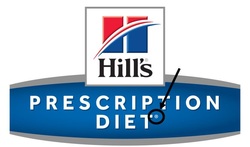
“Is the pet food you are serving up killing your four-legged friend?” Asks the headline of an article published in the UK’s Daily Mail in 2010. As co-founders of the Raw Feeding for IBD Cats group on Facebook, we (Carolina Lima and Laurie Goldstein) ask that question a lot. Commercial processed food is failing our furry family members. The incidence of food related illness in our pets is rising, yet many of our vets continue to recommend food with grains and legumes to our carnivores, and "prescribe" science-based foods, believing that whole, fresh foods are harmful to our pets. How can this be?
The fact of the matter is we fed our cats commercial kibble and canned foods. My husband and I (this is Laurie writing) were rescued by our first cat in 2001. We free-fed kibble on the advice of one of our vets. It was explained to us that cats hunt small prey, so their natural style of eating is many small meals a day, and kibble enabled that. It never occurred to us to ask if the type of food they’re fed should also mimic the small prey they naturally eat. This was a veterinarian, surely this person understood what cats need to thrive and promote optimum health. It wasn’t until we rescued a cat, Chumley, or until Carolina’s Bugsy developed inflammatory bowel disease, that the nutritional knowledge of our veterinarians was called into question. Both cats had intractable diarrhea that led to this medicine and that medicine, and numerous “prescription” diets. Yes, I use quotes around the word prescription, because it is simply – for Hills – part of a trademarked name. Royal Canin and Purina call their “prescription” foods “Veterinary Diets.” None of these foods are actually prescription items that carry a Federal Legend on the bag that requires a veterinary prescription to fill. Make no mistake: "Prescription" foods and "Veterinary Diets" are a form of marketing, and an insidious one that consumers need to question. 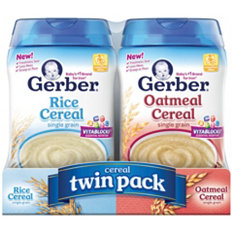
Imagine walking into your pediatrician’s office, and the walls are lined with baby formula, cereal, and cans of food marketed to your children. You shop for food for your children at the doctor's office, not the supermarket. You do this because your doctor suggested you feed your child that brand of cereal, that brand of stew. And when your child gets sick, the doctor has a “prescription” food for that ailment. Now imagine this doctor’s nutrition training included just two or three courses in his eight years of university; those courses were taught by the same company whose food he sells in his office; the textbook used to teach those courses was written by that same food company. Imagine that doctor tells you that there is every reason to trust the science, because the food companies spend millions on research - and the nutrition children need is different than that of adults, it's too complicated to get it right if you do it yourself at home, and fresh food is dangerous as it can carry bacteria and infectious agents. Should you believe him? Do you think it is best to feed your child only processed food (made by the company that taught him what the best food to feed is) – forever? In this scenario, would you believe that this for-profit food company is spending their research dollars with the sole goal of improving the health and well-being of your child? They have no interest in you feeding your child on your own – where’s the money in that? Why would they research what is best for your child? Isn’t it possible that actually conflicts with their goal of corporate profits? Isn’t it likely much of that research goes into how to improve their profit margins? 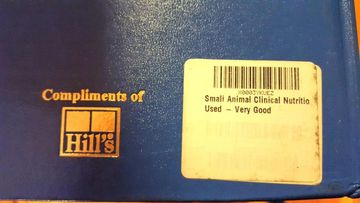
That scenario is the pet food reality.
Pet food companies team up with university veterinarian programs (“Hill’s Gives $5 Million to Ontario Vet College For Educational Center” April 2009). Pet food companies
In fact, the textbook used in nearly every pet nutrition course in every veterinary school, Small Animal Clinical Nutrition, is written by the Mark Morris Institute. What is the Mark Morris Institute? Mark Morris founded Hill’s Pet Nutrition, and his son endowed the Institute in his father’s honor, in keeping with the company’s marketing strategy of using the vets to market their food. The Mark Morris Institute also pays a dozen veterinarians, whom they send, free of charge, to veterinary schools to teach pet nutrition. As discussed by Vince Field, Esq. in The Pet Food Recall and Food Safety (2008), "the commercial pet food industry’s connection to the veterinary profession has resulted in the creation of a system in which veterinarians are not only ill suited to counsel their clients on pet nutrition, but have a financial stake in their clients’ market decisions as well. One of the key questions to be examined here is the ethical implications of a system in which pet food companies are used to educate veterinarians about pet nutrition while at the same time providing veterinarians with exclusive rights to the sale of their pet food products (which may account for up to 40% of the profit of veterinary clinics)." So as the article in the UK Daily Mail states, “While cat and dog food sales have soared by 85 per cent over the past decade, research by the Pet Food Manufacturers Association shows that one in three household pets is now overweight - and chronic conditions in our pets, such as diabetes, kidney and liver disease, heart disease and dental problems (all related to diet) are on the increase.” VPI Pet Insurance indicates that food-related allergies, ear (yeast) infections, and diarrhea or vomiting consistently top the list of reasons for a vet visit. The pet food manufacturers might tout their science and their research. They may proclaim the "proven" benefits of their products. But it becomes increasingly difficult to deny the relationship between pet food company “nutritional training,” veterinary organization and conference funding, veterinarians profiting from the sale of that very same pet food, and deteriorating pet health with food-related chronic diseases. 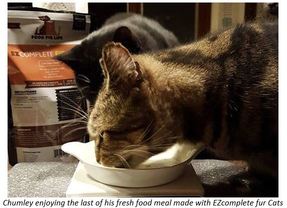
Pet food industry data is quite clear - Americans want healthier food for their pets. According to GfK, retail sales of raw freeze-dried foods for cats and dogs jumped 64% from $25 million to $40 million, and sales of raw frozen pet food jumped 32% from $52 million to $69 million last year. And it is pet parents driving - demanding - the change. Allprovide, a raw pet food company in Norcross, GA, conducted a survey of cat and dog owners across the U.S. on their pet food preferences, knowledge and interests. 1,826 owners were polled, and according to the company, the results show that "more than 37% of pet owners are interested in a fresh, healthy raw food diet for their pets," and an astounding 55% of pet parents would prefer to give their pets fresh food that can be served naturally or cooked. !!!!!!!! The full results of the study show:
Labeled the "natural food craze" and reduced to the "humanization of pets" by Pet Food Industry articles, with allergies, diabetes (in cats), ear & skin infections, lower urinary tract problems/bladder infections, diarrhea/vomiting/intestinal upset - and in cats, inflammatory bowel disease and/or pancreatitisamong the top 10 reasons for vet visits by cats and dogs is it ANY wonder pet owners want to feed their pets FRESH meat-based, grain- and filler-free foods? Foods on which these species have thrived through millennia? In fact - the evolutionary diet on which they thrived until they moved inside and became dependent on us. With research in human health linking processed foods to the development of autoimmune disease, we consider the desire to feed minimally processed foods to our pets as well as to our families simply common sense. CONGRATULATIONS EVERYONE!!!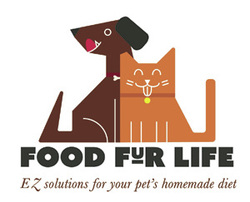
Enjoy!
|
Archives
August 2021
Categories
All

|
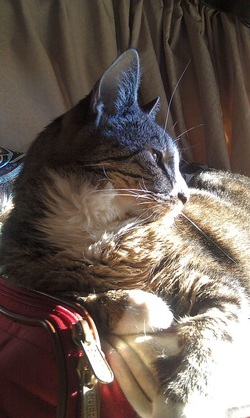
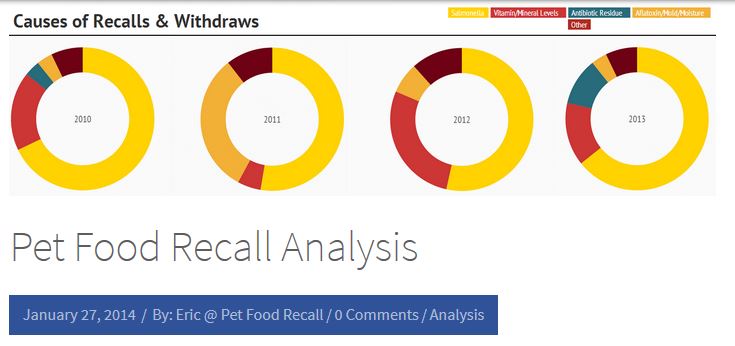

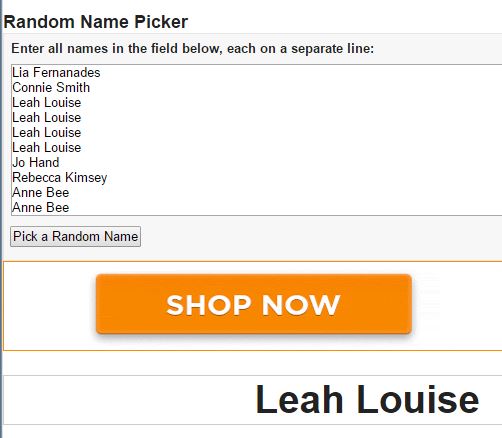
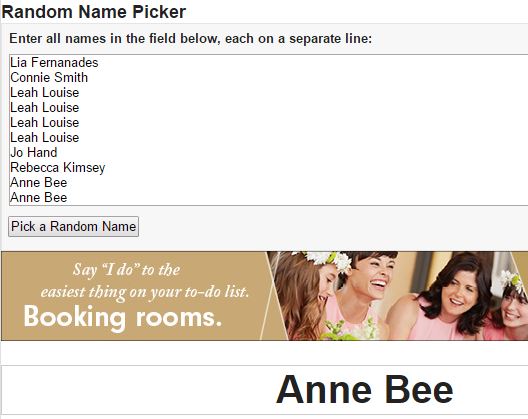
 RSS Feed
RSS Feed